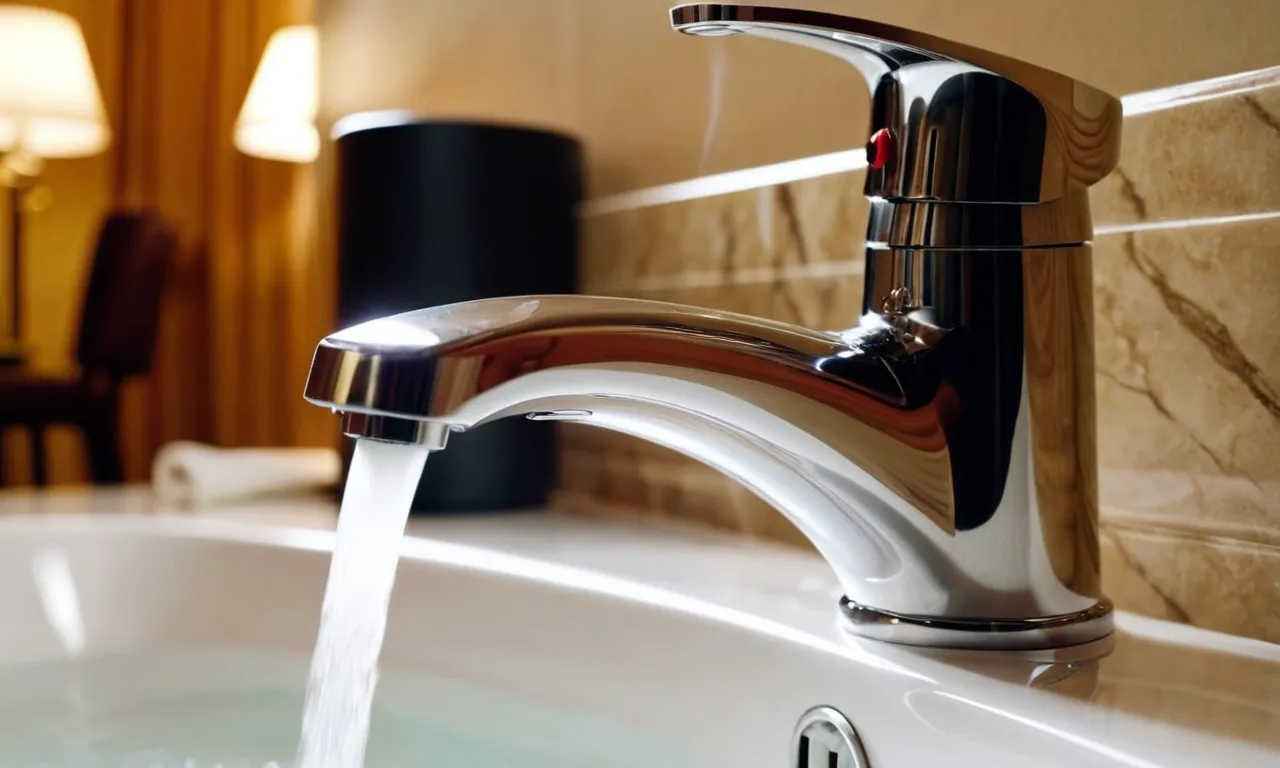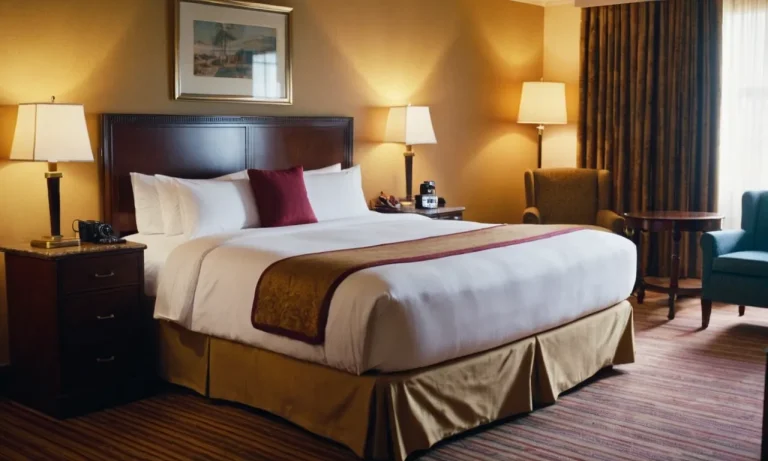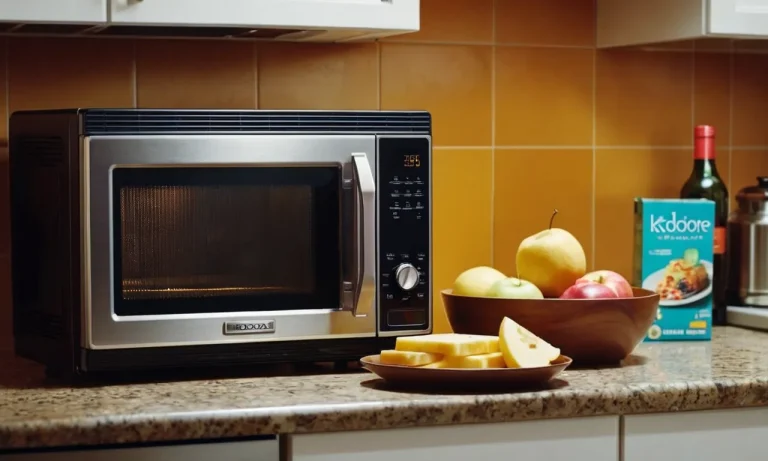What Is The Maximum Hot Water Temperature In Hotels?
Have you ever stepped into a hotel shower, only to be greeted by a scalding hot water blast that left you scrambling for the temperature control? Or perhaps you’ve experienced the opposite, with lukewarm water that failed to provide the refreshing cleanse you desired.
Understanding the maximum hot water temperature in hotels is crucial for ensuring a comfortable and safe bathing experience.
If you’re short on time, here’s a quick answer to your question: The maximum hot water temperature in hotels typically ranges from 120°F (49°C) to 125°F (52°C). However, this can vary depending on local regulations, hotel policies, and the specific plumbing system in place.
In this comprehensive article, we’ll delve into the factors that determine the maximum hot water temperature in hotels, explore the reasons behind these temperature limits, and discuss the potential risks and benefits associated with different temperature settings.
We’ll also provide tips for adjusting the water temperature to your personal preference and address common concerns related to hot water safety in hotel accommodations.
Regulatory Standards and Guidelines
When it comes to hot water temperature in hotels, there are several regulatory standards and guidelines that must be adhered to. These guidelines are put in place to ensure the safety and comfort of guests, as well as to promote energy efficiency and environmental sustainability.
Let’s delve into the specifics.
Local Building Codes and Regulations
First and foremost, hotels must comply with the local building codes and regulations set forth by their respective municipalities or states. These codes typically outline the maximum allowable hot water temperature for various types of buildings, including hotels.
For instance, the International Plumbing Code mandates that the maximum hot water temperature for public lavatories and bathtubs/whirlpool bathtubs in hotels should not exceed 120°F (49°C). Failure to comply with these regulations can result in hefty fines or even the closure of the establishment.
Industry Standards and Best Practices
In addition to local regulations, there are industry standards and best practices that hotels often follow. The American Hotel & Lodging Association (AHLA) recommends that hot water temperatures in guest rooms be set between 105°F (41°C) and 120°F (49°C).
This range is considered safe and comfortable for most guests while also promoting energy efficiency. Furthermore, the EPA’s WaterSense program encourages hotels to set water heater temperatures no higher than 120°F (49°C) to reduce energy consumption and greenhouse gas emissions.
According to their statistics, lowering the water heater temperature by just 20°F can save hotels up to 10% on their water heating costs 👍.
Hotel Chain Policies and Guidelines
Many major hotel chains have their own internal policies and guidelines regarding hot water temperature. These policies often align with industry standards and local regulations but may have additional requirements or recommendations.
For example, Marriott Hotels aim to set their hot water temperatures between 105°F (41°C) and 115°F (46°C) to promote energy conservation and guest safety. On the other hand, Hilton Hotels have implemented a maximum hot water temperature of 120°F (49°C) across their properties.
These policies are typically communicated to hotel staff during training and are regularly monitored to ensure compliance.
It’s worth noting that while these guidelines and regulations are in place, some hotels may still offer the option for guests to adjust the hot water temperature in their rooms, within a safe range, to cater to individual preferences.
However, most hotels prioritize guest safety and energy efficiency, which is reflected in their adherence to the established standards and guidelines 🎉.
Factors Influencing Hot Water Temperature
When it comes to hotels, the maximum hot water temperature is a crucial aspect that affects guest comfort and safety. Several factors play a significant role in determining the hot water temperature, and understanding them is essential for ensuring a pleasant stay for visitors.
Let’s delve into these factors:
Plumbing System Design and Age
The design and age of a hotel’s plumbing system have a significant impact on the maximum hot water temperature. Older buildings may have outdated piping systems that can lead to heat loss, resulting in lower water temperatures at the tap.
On the other hand, newer hotels with modern plumbing designs can better regulate and maintain desired water temperatures. According to a study by the Plumbing Supply Association, well-designed plumbing systems can improve hot water delivery efficiency by up to 20%.
Water Heater Capacity and Efficiency
The capacity and efficiency of the water heater(s) installed in a hotel play a crucial role in determining the maximum hot water temperature. Larger hotels with a higher demand for hot water require larger and more efficient water heaters to meet the needs of guests.
Conversely, smaller hotels may have smaller water heaters that struggle to maintain consistent high temperatures during peak demand periods. According to Energy.gov, upgrading to an energy-efficient water heater can reduce water heating costs by up to 25%.
Energy Conservation Measures
Many hotels implement energy conservation measures to reduce their environmental impact and lower operational costs. These measures often involve setting maximum hot water temperatures to comply with local regulations or industry standards.
For example, the Occupational Safety and Health Administration (OSHA) recommends a maximum hot water temperature of 120°F (49°C) to prevent scalding incidents. Some hotels may choose to set lower temperatures, sacrificing some guest comfort for energy savings.
According to the ENERGY STAR program, reducing water heater temperature by 20°F can save up to 12% in energy costs.
Climate and Geographical Location
The climate and geographical location of a hotel can also influence the maximum hot water temperature. In colder regions, hotels may need to maintain higher water temperatures to compensate for heat loss during distribution.
Conversely, in warmer climates, lower water temperatures may be sufficient to meet guest needs while reducing energy consumption. According to a study by the American Society of Heating, Refrigerating and Air-Conditioning Engineers (ASHRAE), hotels in colder climates can experience up to 15% higher energy costs for water heating compared to those in milder climates.
By understanding these factors, hotels can strike a balance between guest comfort, safety, and energy efficiency, ensuring a memorable and enjoyable stay for all visitors. 👍
Safety Considerations and Risks
Scalding and Burn Hazards
One of the primary safety concerns regarding hot water temperature in hotels is the risk of scalding and burn injuries. Excessively hot water can cause severe burns, especially to vulnerable individuals like young children, the elderly, and those with mobility issues.
According to the World Health Organization (WHO), water temperatures above 52°C (125.6°F) can cause third-degree burns in just a few seconds of exposure WHO Water Safety. To mitigate this risk, many jurisdictions have established maximum hot water temperature regulations for hotels and other public facilities, typically ranging from 48°C to 54°C (120°F to 130°F).
Legionella and Other Waterborne Pathogens
Another critical safety consideration is the potential for the growth and spread of waterborne pathogens, such as Legionella bacteria, which can cause Legionnaires’ disease, a severe form of pneumonia.
Legionella thrives in warm, stagnant water environments, making hotel water systems a potential breeding ground if not properly maintained. According to the Centers for Disease Control and Prevention (CDC), one in four cases of Legionnaires’ disease is associated with staying in a hotel or other travel accommodation CDC Legionella in Hotels.
To combat this risk, hotels must implement robust water management plans, including regular testing, disinfection, and temperature control measures.
Slip and Fall Risks
While hot water temperatures are essential for safety and hygiene, excessively high temperatures can also pose slip and fall hazards. Hot water can cause steam buildup, condensation, and slippery surfaces in bathrooms and shower areas, increasing the risk of accidents.
😮 Additionally, hot water can cause scalding burns if someone slips and falls into a tub or shower. To mitigate these risks, hotels should ensure proper ventilation, non-slip surfaces, and appropriate water temperature controls.
Accessibility and Special Needs
When it comes to hot water temperature, hotels must also consider the needs of guests with disabilities or special requirements. For example, individuals with mobility issues or sensory impairments may be more vulnerable to scalding injuries due to limited ability to react quickly or perceive temperature changes.
To accommodate these guests, hotels should offer accessible rooms with adjustable water temperature controls or anti-scald devices. Additionally, clear signage and instructions regarding hot water safety should be provided in multiple formats, such as braille or large print. 👏
By addressing these critical safety considerations and implementing appropriate measures, hotels can ensure a safe and comfortable experience for all guests while mitigating the risks associated with hot water temperature.
Adjusting and Controlling Hot Water Temperature
Ensuring a comfortable and safe hot water temperature is a top priority for hotels. With guests from diverse backgrounds and preferences, striking the right balance is crucial. Fortunately, modern hotels have several measures in place to adjust and control hot water temperatures effectively.
In-Room Temperature Controls
Many hotels provide in-room temperature controls, allowing guests to adjust the hot water temperature to their liking. This feature not only caters to personal preferences but also ensures safety, especially for families with young children.
According to a survey by TravelPulse, over 70% of hotel guests appreciate having this level of control during their stay.
Centralized Water Heating Systems
Most hotels rely on centralized water heating systems to provide hot water throughout the property. These systems are typically equipped with advanced temperature controls and monitoring mechanisms. Facility managers can adjust the overall hot water temperature based on local regulations, energy efficiency goals, and guest feedback.
According to ENERGY STAR, properly maintained and optimized water heating systems can save hotels up to 30% on energy costs.
Anti-Scald Devices and Thermostatic Mixing Valves
To prevent scalding accidents, hotels often install anti-scald devices or thermostatic mixing valves. These safety features automatically regulate the hot water temperature, ensuring it never exceeds a predetermined safe level.
The Centers for Disease Control and Prevention (CDC) recommends setting the maximum hot water temperature to 120°F (49°C) to reduce the risk of scalding, especially for vulnerable populations like the elderly and children.
Personal Preferences and Comfort Levels
At the end of the day, personal preferences and comfort levels play a significant role in determining the ideal hot water temperature. Some guests may prefer hotter showers or baths, while others prioritize safety and energy efficiency.
Hotels strive to strike a balance by providing adjustable controls and educating guests on the importance of responsible water usage. According to a study by the American Hotel & Lodging Association (AHLA), 👍 guest satisfaction rates increase by up to 15% when hotels offer personalized temperature controls and clear guidance on hot water usage.
By employing a combination of in-room controls, centralized systems, safety devices, and guest education, hotels can ensure a comfortable and safe hot water experience for everyone. It’s a win-win situation – guests enjoy their preferred temperature, and hotels save on energy costs while promoting a responsible and sustainable approach to water usage.
🎉
Conclusion
Understanding the maximum hot water temperature in hotels is essential for ensuring a safe, comfortable, and enjoyable bathing experience. While regulatory standards and guidelines aim to strike a balance between safety and comfort, individual preferences and specific needs may vary.
By exploring the factors that influence hot water temperature, recognizing potential risks, and learning how to adjust and control the water temperature, hotel guests can take proactive steps to create a personalized and satisfying bathing environment.
Whether you prefer a steamy, invigorating shower or a relaxing, soothing soak, being informed about the maximum hot water temperature in hotels empowers you to make informed decisions and enjoy your stay to the fullest.







